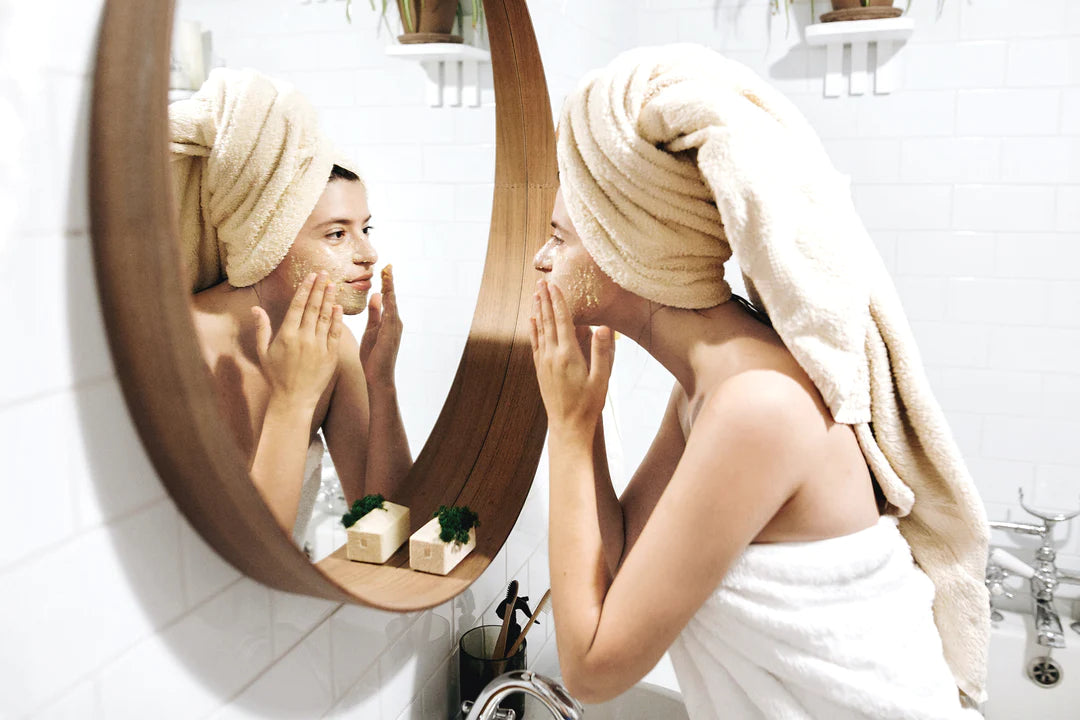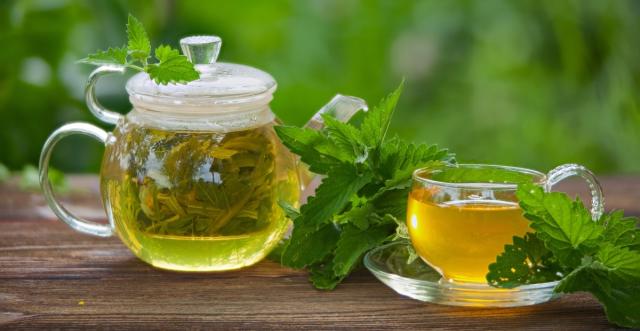
PCOS Acne
What is PCOS?
PCOS stands for Polycystic Ovary Syndrome. It is a hormonal disorder that affects people with ovaries, typically during their reproductive years. PCOS is characterized by a range of symptoms, including irregular menstrual cycles, excessive levels of androgens (male hormones) in the body, and cysts on the ovaries.
The exact cause of PCOS is not fully understood, but it is believed to involve a combination of genetic, hormonal, and environmental factors. Insulin resistance and elevated levels of insulin are thought to play a significant role in the development of PCOS, as insulin can stimulate the ovaries to produce excess androgens.
What is PCOS Acne?
PCOS acne refers to acne that occurs in individuals with Polycystic Ovary Syndrome. PCOS is a hormonal disorder that affects people with ovaries, and one of its common symptoms is acne.
PCOS acne tends to be more severe and persistent than typical acne. It often presents as deep, cystic lesions that develop beneath the skin's surface and can be painful and inflamed. These acne lesions may occur on the face, chest, back, and other areas of the body.
The underlying hormonal imbalance in PCOS, particularly elevated levels of androgens (male hormones), contributes to the development of acne. Androgens stimulate the sebaceous glands in the skin to produce excess oil (sebum), which can clog pores and lead to the formation of acne lesions.
What Does PCOS Acne Look Like?
PCOS acne can vary in appearance but tends to be more severe and persistent than typical acne. Here's how PCOS acne may look:
- Cystic Lesions: PCOS acne often presents as deep, cystic lesions that develop beneath the skin's surface. These cysts are larger and more inflamed than typical pimples and can feel tender or painful to the touch.
- Inflammatory Papules and Pustules: In addition to cysts, PCOS acne may include inflammatory papules and pustules. These are red, raised bumps on the skin that may contain pus. They can be smaller than cysts but still cause discomfort and irritation.
- Blackheads and Whiteheads: PCOS acne can also include comedones, which are non-inflammatory lesions that result from clogged pores. Blackheads are open comedones that appear dark or black due to oxidized sebum, while whiteheads are closed comedones covered by a thin layer of skin.
- Distribution: PCOS acne can occur on various areas of the body, including the face, chest, back, and upper arms. It may be particularly prominent in areas where there is a higher concentration of oil glands and hair follicles.
- Scarring: Severe cases of PCOS acne may lead to scarring, including depressed or pitted scars known as atrophic scars. These scars can persist even after the acne has resolved and may require additional treatment to improve their appearance.
Overall, PCOS acne tends to be characterized by larger, more inflamed lesions that are deeper and more difficult to treat than typical acne.
How To Get Rid of Acne From PCOS?
Managing acne associated with Polycystic Ovary Syndrome (PCOS) naturally involves adopting lifestyle changes and using natural remedies to help reduce inflammation, regulate hormone levels, and improve overall skin health. Here are some natural approaches to consider:
- Maintain a Healthy Diet: Focus on a balanced diet rich in whole foods, including fruits, vegetables, lean proteins, and whole grains. Limit processed foods, sugary snacks, and refined carbohydrate intake, as these can exacerbate acne symptoms. Incorporate foods with anti-inflammatory properties, such as fatty fish (salmon, sardines), nuts, seeds, and leafy greens.
- Stay Hydrated: Drink plenty of water daily to keep the skin hydrated and promote detoxification. Aim for at least 8-10 glasses of water per day, or more if you're physically active or live in a hot climate.
- Manage Stress: Chronic stress can exacerbate acne symptoms by increasing cortisol levels and triggering inflammation. Practice stress-reduction techniques such as mindfulness meditation, deep breathing exercises, yoga, or spending time in nature to help manage stress levels and support overall well-being.
- Regular Exercise: Engage in regular physical activity to promote circulation, reduce stress, and support hormone balance. Aim for at least 30 minutes of moderate-intensity exercise most days of the week, such as brisk walking, cycling, or swimming.
- Herbal Supplements: Certain herbs and supplements may help regulate hormone levels and improve acne symptoms. Examples include:
- Spearmint Tea: Drinking spearmint tea may help reduce excess androgens and improve acne symptoms in individuals with PCOS.
- Saw Palmetto: This herbal supplement may help block the conversion of testosterone to dihydrotestosterone (DHT), a potent androgen implicated in acne development.
- Vitex (Chaste Tree Berry): Also known as Vitex agnus-castus, this herb may help regulate menstrual cycles and hormone levels in women with PCOS.
- Essential Oils: Some essential oils have antibacterial and anti-inflammatory properties that can help improve acne symptoms. Examples include tea tree oil, lavender oil, and rosemary oil.
- Healthy Skincare Habits: Establish a gentle skincare routine using natural, non-comedogenic products suitable for acne-prone skin. Cleanse the skin twice daily, avoid harsh scrubbing or overwashing, and use oil-free moisturizers and sunscreen.
- Adequate Sleep: Prioritize quality sleep to support hormonal balance and skin regeneration. Aim for 7-9 hours of uninterrupted sleep per night and establish a relaxing bedtime routine to promote restful sleep.
It's essential to remember that natural remedies may take time to show results and individual responses can vary.
Does PCOS Acne Go Away?
It's essential to recognize that PCOS is a chronic condition, and acne management may require ongoing treatment and maintenance to keep symptoms under control. Additionally, hormonal fluctuations, stress, diet, and other factors can influence acne flare-ups.
PCOS acne can vary significantly among individuals, and whether it goes away entirely depends on various factors, including the severity of the acne, the effectiveness of treatment, and individual hormonal fluctuations. For some individuals with PCOS, acne may improve or even resolve with proper management and treatment, while others may continue to experience acne symptoms over the long term.
Effective management of PCOS acne typically involves addressing the underlying hormonal imbalances associated with PCOS, as well as implementing lifestyle modifications and skincare practices to reduce inflammation and improve overall skin health. With a comprehensive treatment approach, many individuals with PCOS can successfully manage their acne and see significant improvements in their skin over time.
While PCOS acne may not necessarily "go away" permanently for everyone, it can be effectively managed with the right approach, allowing individuals to achieve clearer, healthier skin and improved overall quality of life.
How To Prevent PCOS Acne?
While there is no cure for PCOS, preventing PCOS-related acne involves managing the underlying hormonal imbalances associated with Polycystic Ovary Syndrome and implementing skincare and lifestyle practices to reduce acne flare-ups.
Here are some strategies to help prevent PCOS acne:
- Follow a Healthy Diet: Eat a balanced diet rich in whole foods, including fruits, vegetables, lean proteins, and whole grains. Limit processed foods, sugary snacks, and refined carbohydrate intake, as these can exacerbate acne symptoms. Some individuals with PCOS may benefit from a low-glycemic index diet to help stabilize blood sugar levels and reduce insulin resistance.
- Manage Stress: Chronic stress can worsen acne symptoms by increasing cortisol levels and triggering inflammation. Practice stress-reduction techniques such as mindfulness meditation, deep breathing exercises, yoga, or spending time in nature to help manage stress levels and support overall well-being.
- Regular Exercise: Engage in regular physical activity to promote circulation, reduce stress, and support hormone balance. Aim for at least 30 minutes of moderate-intensity exercise most days of the week, such as brisk walking, cycling, or swimming.
- Skincare Routine: Establish a gentle skincare routine using non-comedogenic products suitable for acne-prone skin. Cleanse the skin twice daily, avoid harsh scrubbing or overwashing, and use oil-free moisturizers and sunscreen.
- Avoid Triggering Factors: Identify and avoid factors that may trigger acne flare-ups, such as certain skincare products, heavy makeup, and exposure to environmental pollutants or harsh chemicals. Be mindful of hair and skincare products that contain potentially comedogenic ingredients, and opt for oil-free or non-comedogenic formulations when possible.
By implementing these preventive measures the symptoms can often be managed through lifestyle changes.
What to Do Next? Try Averr Aglow’s Clear Skin Kit
Tired of feeling lost and confused about what you should do to get clear, smooth skin? Order the Clear Skin Kit.
The Clear Skin Kit contains products specially crafted with the perfect blend of natural ingredients that help soothe and calm red, irritated skin while also clearing up breakouts. If you struggle with sensitive acne/breakout-prone skin, hormonal acne, cystic acne, or rosacea, then you’ll be happy you found this complete routine.
Please understand, that results may vary, we’re not selling you a miracle product and would never try to position or state that you will get a true result in only a few days. In our clinical trials, most users found the most results at the 30-day and then the 56-day mark by sticking with our routine.
What is Averr Aglow®?
Averr means Truth. We have pioneered a revolutionary no-rinse cleansing routine specifically tailored to address problematic skin issues.
Hi, I’m Camille, founder of Averr Aglow, and I help adult women who are battling breakouts and acne get clear skin results like they have never seen before, even if nothing has worked for them in the past.
After battling breakouts for over 16 years, trying every skincare product under the sun, and visiting countless professionals like dermatologists, nutritionists, and hormonal doctors, I finally learned why nothing seemed to work on clearing up my skin, what truly causes breakouts and acne, and EXACTLY what to do to get clear skin results – and I want to help you do the same.
Let me help you! Read my full testimonial here.






